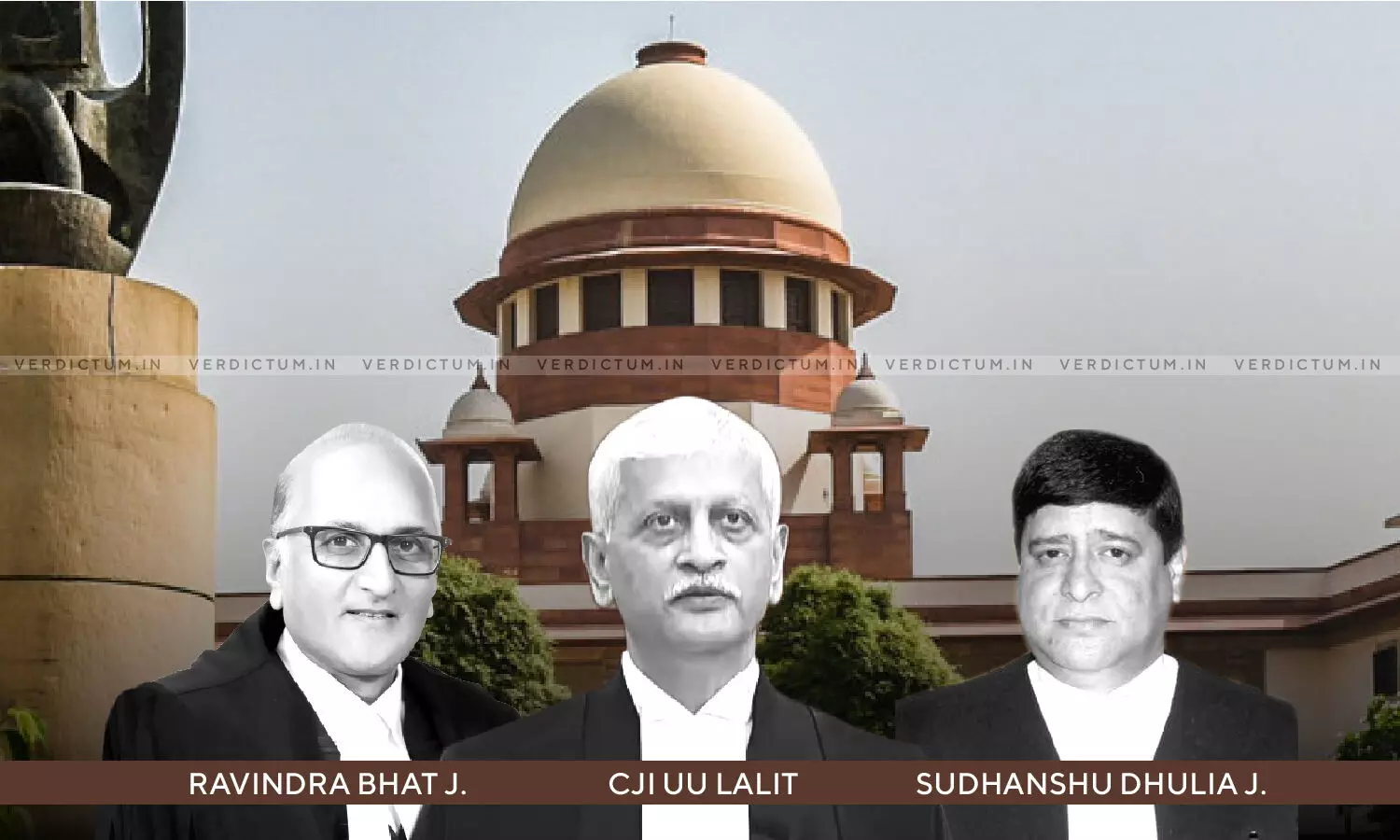
Employers Obligated To Deposit Employee's Contribution Towards EPF Or ESI To Avail Benefit Of Deductions Under Income Tax Act- SC
 |
|A Supreme Court Bench of Chief Justice Uday Umesh Lalit, Justice S. Ravindra Bhat, and Justice Sudhanshu Dhulia upheld a judgment passed by the Gujrat High Court and held that an employer is obligated to deposit the employee's contribution to employee provident fund (EPF) or employee state insurance (ESI) to avail the benefit of deduction under Section 36(1)(va) and Section 43B of the Income Tax Act.
The Bench observed, "the non-obstante clause would not in any manner dilute or override the employer's obligation to deposit the amounts retained by it or deducted by it from the employee's income, unless the condition that it is deposited on or before the due date"
Senior Counsel Arvind P Datar appeared for the Appellants, and ASG Balbir Sigh appeared for the Revenue.
In this case, the common question involved was with respect to the interpretation of Section 36(1)(va) and Section 43B of the Income Tax Act, 1961, and whether the appellant assessees were entitled to a deduction of amounts deposited by them.
In the years under consideration, the Assessing Officers had ruled that as the sums were paid beyond the due dates as prescribed under the respective Acts, the right to claim such sums as allowable deduction while computing the income was lost forever.
The assessees' pleas were unsuccessful before the Income Tax Appellate Tribunal (hereafter, "ITAT"). Ultimately, in the case of the impugned judgment, the High Court too rejected its pleas.
The Apex Court noted that the parties had two diametrically opposed views in regard to the interpretation of Section 36(1)(va) and the proviso to Section 43(b) of the Act. Analysing the two provisions and a catena of judgments like State of Jharkhand v Ambay Cements and Commissioner of Income Tax-III v Calcutta Knitwears, Ludhiana, the Court stressed on the intent behind the provisions and their character, and it upheld the High Court's reasoning that the non-obstante clause would not in any manner dilute or override the employer's obligation to deposit the amounts retained by it or deducted by it from the employee's income, unless the condition that it is deposited on or before the due date.
In a similar context, it held that "The non-obstante clause has to be understood in the context of the entire provision of Section 43B which is to ensure timely payment before the returns are filed, of certain liabilities which are to be borne by the assessee in the form of tax, interest payment and other statutory liability. In the case of these liabilities, what constitutes the due date is defined by the statute. Nevertheless, the assessees are given some leeway in that as long as deposits are made beyond the due date, but before the date of filing the return, the deduction is allowed. That, however, cannot apply in the case of amounts which are held in trust, as it is in the case of employees' contributions- which are deducted from their income. They are not part of the assessee employer's income, nor are they heads of deduction per se in the form of statutory pay out. They are others' income, monies, only deemed to be income, with the object of ensuring that they are paid within the due date specified in the particular law. They have to be deposited in terms of such welfare enactments. It is upon deposit, in terms of those enactments and on or before the due dates mandated by such concerned law, that the amount which is otherwise retained, and deemed an income, is treated as a deduction. Thus, it is an essential condition for the deduction that such amounts are deposited on or before the due date."
The Court further held that the non-obstante clause under Section 43B or anything contained in that provision would not absolve the assessee from its liability to deposit the employee's contribution on or before the due date as a condition for the deduction.
In light of the same, the Supreme Court found no reason to interfere with the decision of the High Court, and it dismissed the appeal petitions.
Cause Title - Checkmate Services P. Ltd. v. Commissioner of Income Tax - 1
Click here to read/download the Judgment